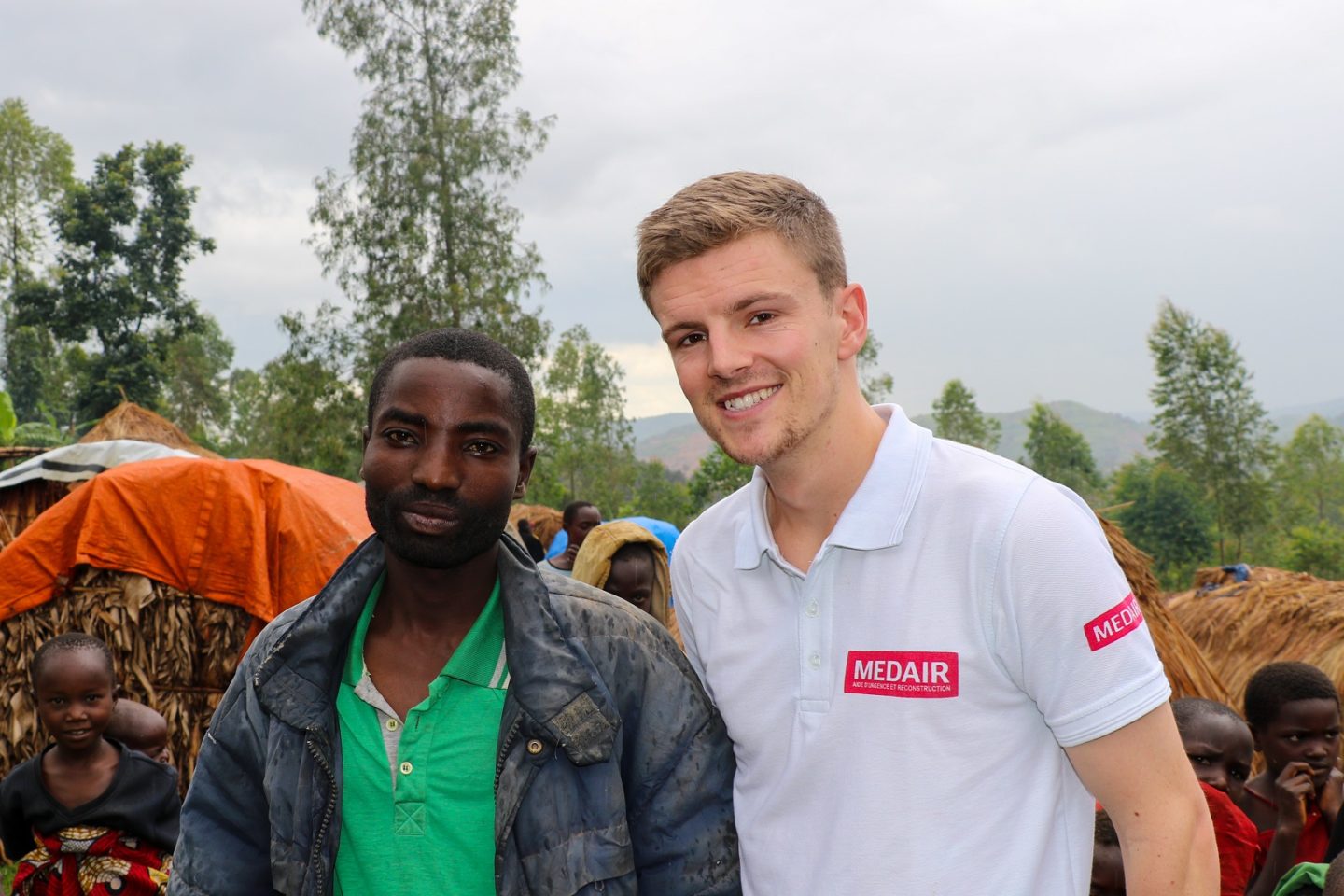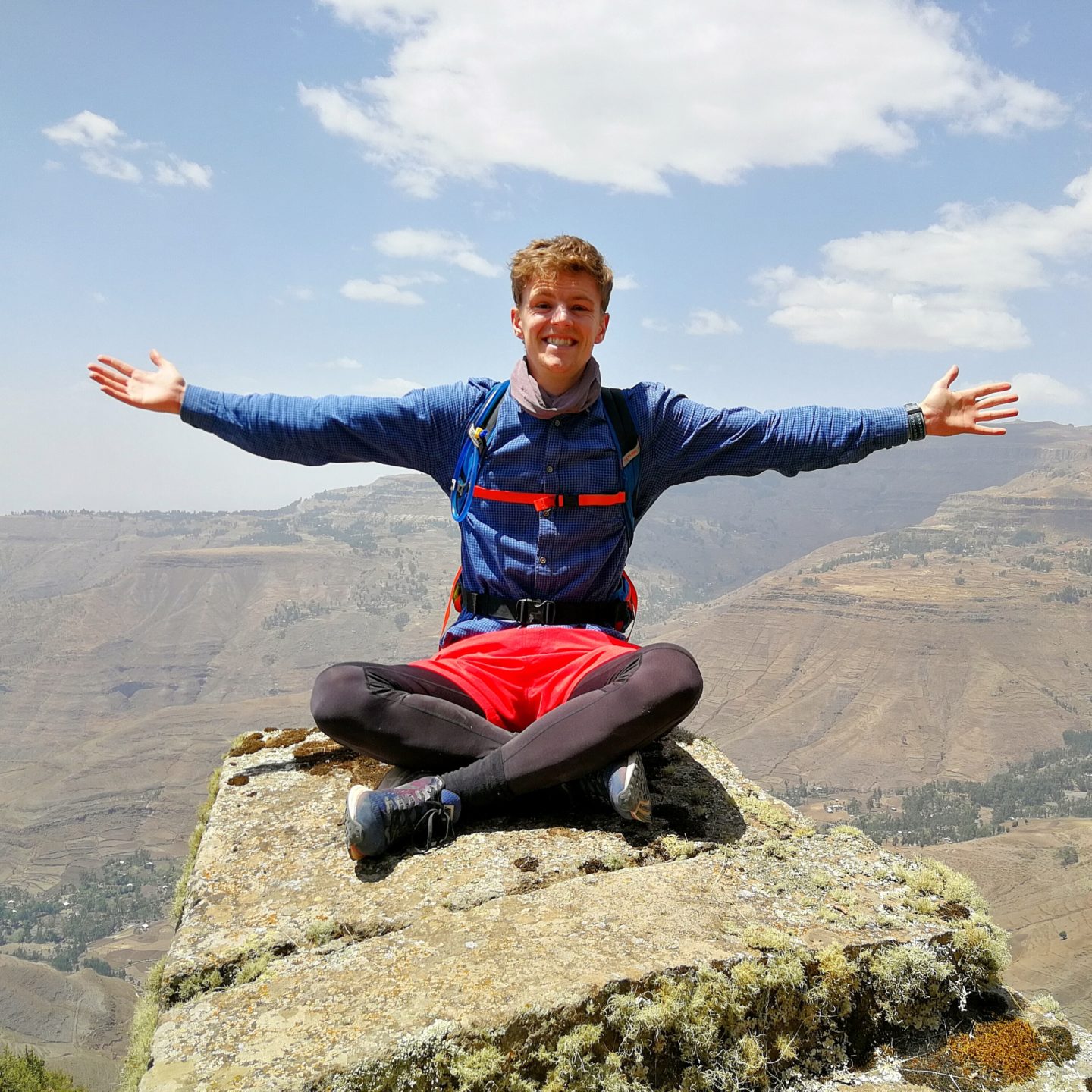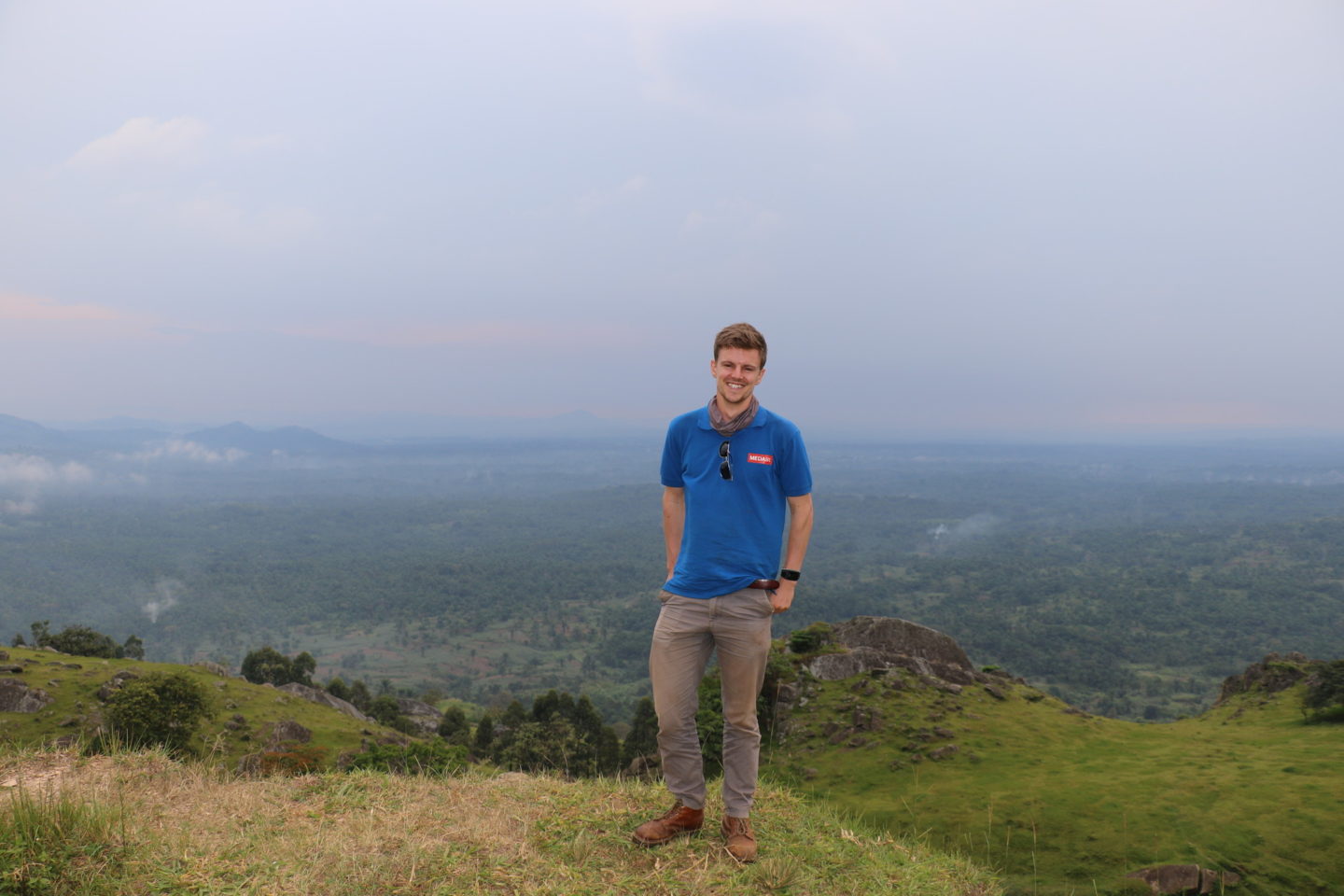Stories from DR Congo
How I Became A Humanitarian Aid Worker
Pete H. is Medair’s Programme Funding & Communication Manager in DR Congo. He answers some frequently-asked-questions about his journey to becoming a humanitarian aid worker. Are you interested in a job in humanitarian aid? Click here to learn more.
You have worked in DR Congo with Medair for two years now. What is your educational and professional background?
I studied History at the University of York (UK) and have a postgraduate diploma in Humanitarian Assistance from the Liverpool School of Tropical Medicine (UK).
After university, I worked in Liberia for a community health organisation helping them with grant development and communication. Then, I worked for a research consultancy firm in Egypt, where I was responsible for putting together bids to measure the impact of emergency and development projects.

How did you hear about Medair?
I discovered Medair while looking through job listings online. On ReliefWeb, I found a position with Medair that seemed appealing. I went to Medair’s website to learn more about the organisation and thought it would be a good fit for me.
What was the process like for you to join Medair?
Initially, I applied for the Relief & Recovery Orientation Course (ROC)—the first step towards getting a job in the field—but was rejected.
A few months later during my postgraduate studies, I discovered one of my classmates had previously worked with Medair in Iraq. She encouraged me to apply again and offered to put in a recommendation for me. Simultaneously, a position I was interested in was advertised, so I applied again. Soon after, I was invited to attend the ROC and started work two months later.
What was your motivation for becoming an aid worker?
First and foremost, it is my Christian faith. I believe that each person is made in God’s image and is inherently valuable. This motivates me to serve and love others because I believe it demonstrates God’s love for them.
Secondly, my experience growing up in Malawi, where my father was an orthopaedic surgeon, also really shaped and motivated me to join this work. I’m not a medical doctor like my father, but I’m confident that I can still make a significant impact through my career by developing and using the skills gifted to me.

What drew you to DR Congo specifically?
DR Congo is a very intense environment to live and work in. Unfortunately, the needs among people continue to grow, with an increased number of armed groups active in the region and now the Ebola outbreak.
At the same time, there are a lot of humanitarian organisations working to serve people affected by these large-scale problems, which I thought would make for an interesting context to work in. Having grown up in Malawi and worked in Liberia, I was also confident that I could adapt to the cultural context, and the opportunity to advance my language skills was appealing.
What’s one of the best parts about working in the field?
The best part is sharing the experience with colleagues. This type of work—and organisations like Medair in particular—attracts people who are highly motivated and come from diverse backgrounds. To share the experience with people like that is something I find hugely valuable. A special bond is created when you are put under pressure together as a team and find a way through it together.
What’s one of the most difficult parts of working in the field?
It is difficult feeling disconnected from friends in the UK. While many of those relationships can be revisited and enjoyed when I’m back in the UK, there’s just no way to go back and share in major life events together, such as weddings.
What helps me in those times is having a strong conviction that I’m doing the right thing, and that ultimately it is worth the cost of missing out on some things to do meaningful work.

What surprised you about your job in the field?
I think I had fairly reasonable expectations going in. However, it did surprise me how long it took to understand the context, my role, and how the team works together. I often reminded myself that starting slow would help me to lay a firm foundation, enabling me to work better for longer. It also surprised how the learning never stops—the country has so many layers. The truism “the more you know, the more you know you don’t know” certainly applies.
What advice would you give people new to humanitarian aid or perhaps working in the field for the first time?
I would advise people to recognise that they can’t control or plan for all the variables. There are so many things about your job and the working environment that you cannot know in advance. Also, things can change quickly.
I would advise as well to ask yourself three honest questions before applying for jobs:
- Do you trust God? Do you trust that He is with you and will either protect you from harm or enable you to cope with it?
- Do you trust Medair? Working in an insecure environment, personal security is an important consideration. Do you trust the organisation to have good measures in place to protect staff as much as possible as well as to provide good work experience?
- Do you trust yourself? Under difficult circumstances, it is important to know yourself and your ability to make wise decisions as well as your vulnerability to stress and burn out.
Ultimately, Medair isn’t looking for heroes, but for people who are ready to invest wholeheartedly in the work, to find places to apply their knowledge and skills, and be willing to learn along the way.
Are you interested in working in humanitarian aid? Visit our Jobs Section to learn more about what we look for, open positions, and how to apply.
